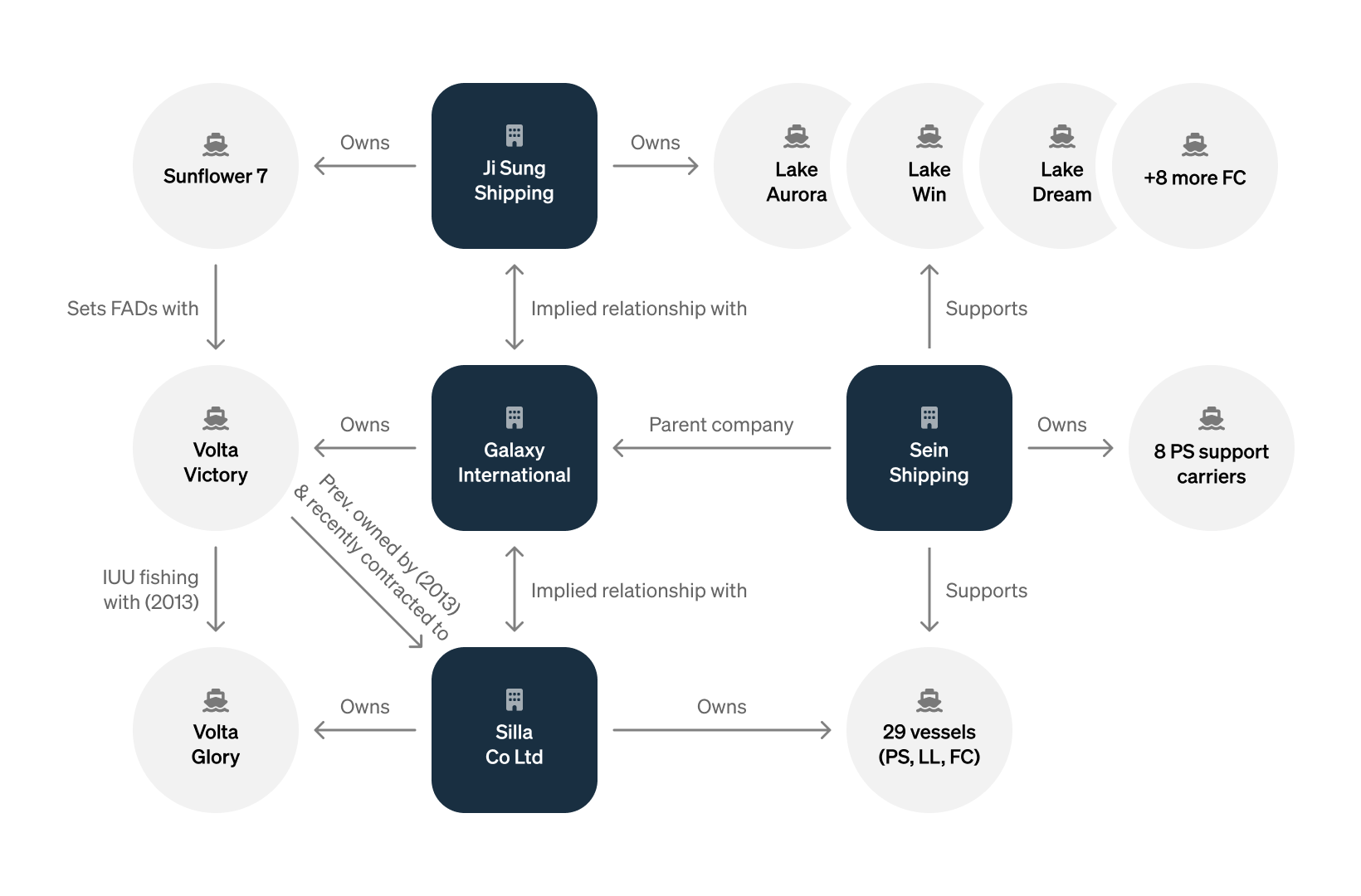Beyond the initial furore around the Sun Flower 7, I have occasionally posted on the behaviour of Korean Carriers acting as fishing boasts when setting FADs without any Observer’s supervision outside the EEZs of FFA/PNA members since the WCPFC is the only tuna RFMO that does not have an independent observer programme on carriers (I have written on this before).
But honestly, I barely have time to write these blogs, even less to do a deep dive (for free) into how generalised (and entrenched) the behaviour is among carriers that have South Korea as a country of beneficial ownership.
Yet, thankfully, Megan Charley from Starboard did so in this excellent case study published on the Starboard website. Her credentials and capacity for the job are impeccable. She was an intelligence officer with the Australian Defence Force and Border Security, then went to AFMA. Now she is with Starboard; she does not leave stones unturned and asks the right questions.
Carrier AIS track history including FAD setting activity across the Kiribati and Tuvalu EEZs over 2 years, coinciding with favourable tuna fishing grounds. This figure has a chlorophyll-a environmental layer applied through the Starboard map layers, showing higher concentrations of chlorophyll-a in darker shades of green.
The source is the linked study
So when she reached out to me with this study, I was more than happy to help… even if I think that what I mostly did was to respond with more questions and endless blogs!
Identified relationships between 4 major companies operating South Korean (including those flagged to other countries such as Panama and Kiribati) fish carriers, purse seine support carriers, purse seine fishing vessels, and other fishing vessels.
The source is the linked study
Below, I quote the “conclusions” in the form of “observations” compiled as a result of her case study/analysis for further consideration, but please refer to the original. It is very well illustrated and analyses vessel-by-vessel activity and ownership.
Carrier vessels should be closely monitored during the current closure period of 1 July–15 August 2024, in particular for more subtle manoeuvres that could indicate FAD setting.
Requests to flag-states or the WCPFC Secretariat for their additional FAD closure months (or CNM restrictions on carrier FAD setting in general) can be made by authorised enforcement agencies during relevant operations to analyse and report on any potential FAD setting activity.
Consideration for the additional flag-specified closure periods being made public for more effective monitoring and compliance efforts.
Consideration for further analysis outside of closure periods on the amount of FADs potentially being released and not recovered by carrier vessels, and whether this constitutes illegal dumping under international law.
Whether the role and classification of carriers as fishing vessels under the WCPFC Convention Text and ancillary CMMs should be reviewed, to determine whether fishing activities such as FAD setting should be allowed for carrier vessels (and if so, whether it should be monitored by observers).
Improved information sharing between flag-states and port-states for effective collaboration and implementation of PSM controls to enable the denial of port entry for more IUU vessels and overarching companies.

